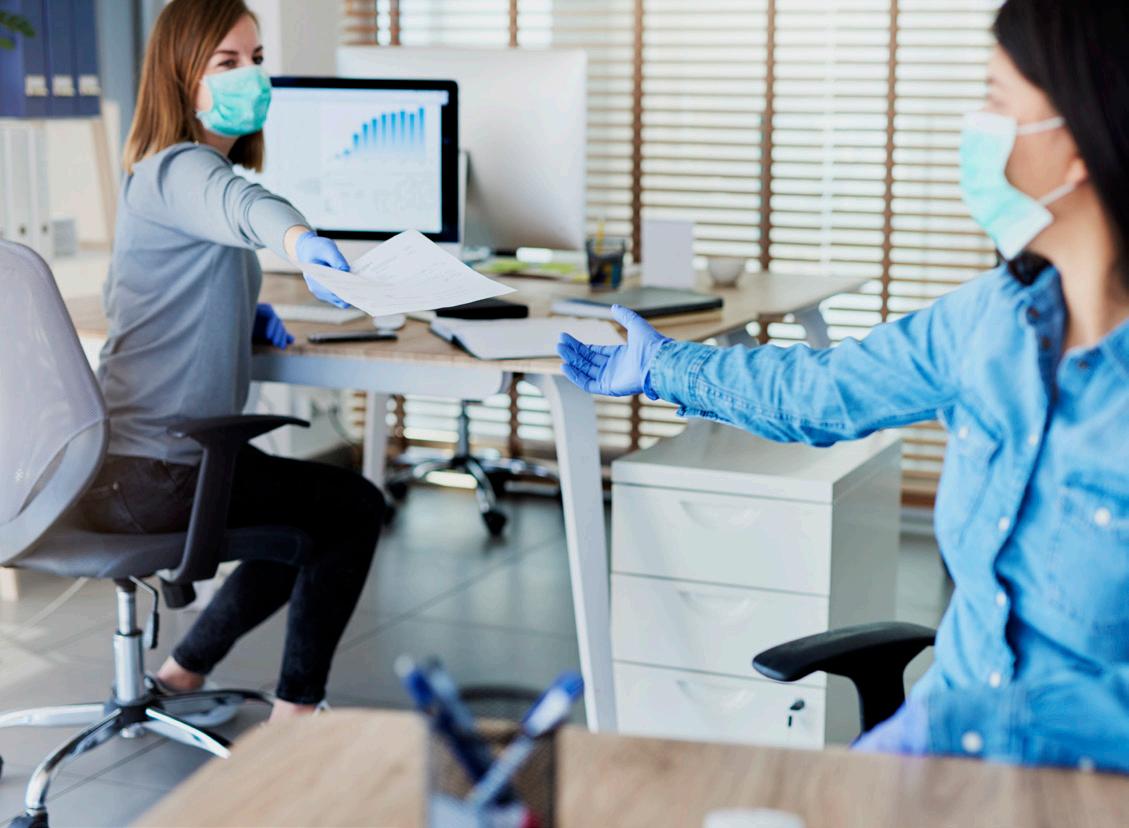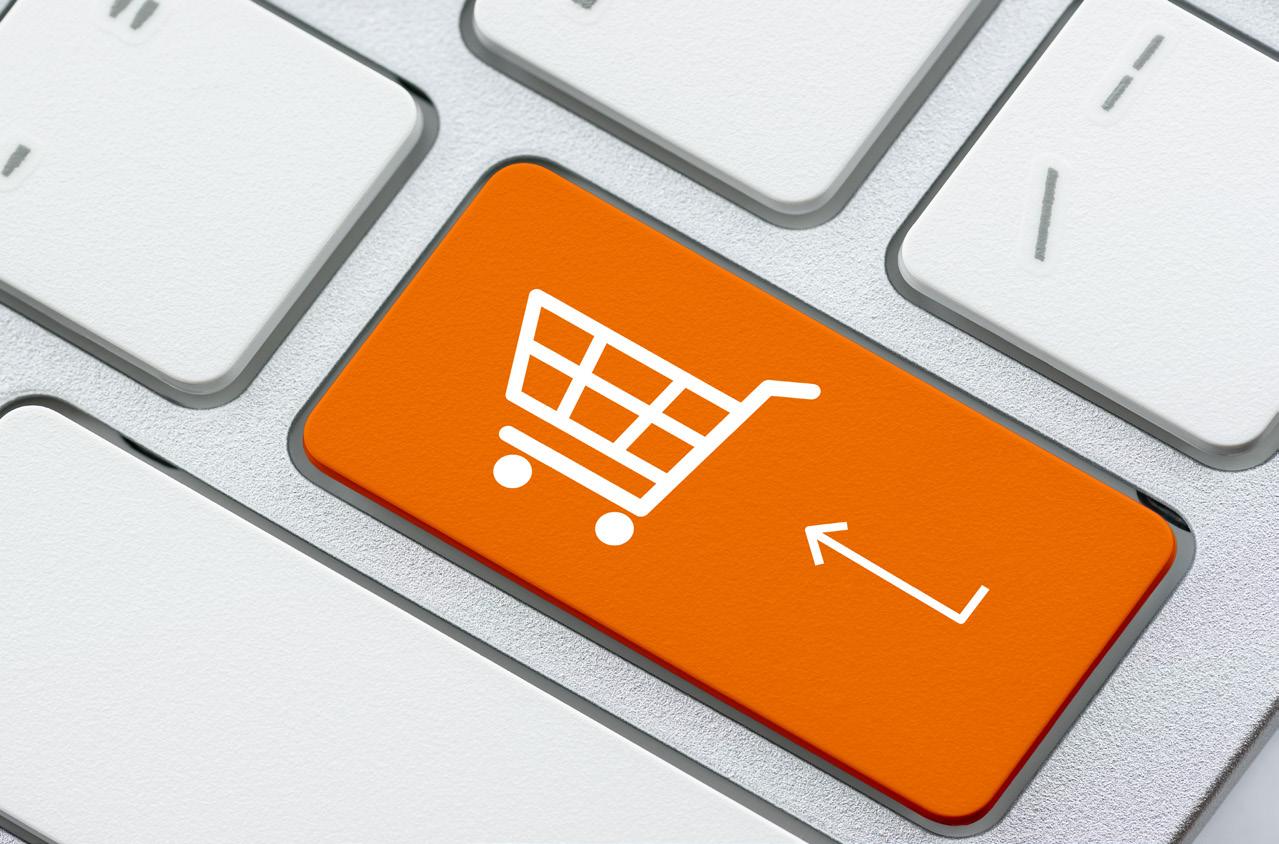
8 minute read
LEARNING FROM THE FUTURE AND NOT THE PAST - SOLVING COVID-19 TOGETHER
BY STEPHEN VAN COLLER - EOH GROUP CEO
The fourth industrial revolution, already impacting every aspect of our daily life, has been accelerated by the world’s response to the COVID-19 pandemic. When physical distance has to be maintained to keep us safe, digital solutions are increasingly responsible for the way we connect, on a social, economic and cultural level. The power of digital lies in its ability to quickly and efficiently create and scale up connections; between employees and employers, learners and information, and consumers and providers of goods and services. We’re going to need to harness this power, and the relationships it enables, if we are going to Solve COVID-19.

A SOLVE MINDSET
Weathering the economic storm under the constrained economic and social conditions we find ourselves in, is going to require collaboration, a shared vision, and what I call a SOLVE mindset. The current COVID-19 environment has shown that you need to continually recalibrate your mind around the realities and opportunities of the future and importantly what that means for your business. We have to look at our businesses, and our social and economic challenges, and identify what aspects you can repurpose in a distinctive way to solve them. During times of massive uncertainty, we need out-of-the-box strategies. We need to learn from the future, as COVID-19 has shown us that the past is not a good predictor of the future.
NO MORE GOING IT ALONE
A good example of collaboration was pro bono work that our EOH company iOCO, recently did alongside fundraising experts BackaBuddy and the Gauteng Food Security Council. iOCO helped develop a humanitarian-relief platform in order to coordinate food provision across the country. The platform, called LinkedTo, connects donors and those in need to leverage resources and efforts to maximise the reach of food donations. It allows NGOs to identify and locate communities in need, and to track and record food parcel delivery as part of COVID-19 relief efforts. That information is also fed back into the Presidency to assist in coordinating relief through the Solidarity Fund.
This is a perfect example of the effect of an innovative digital solution. Not only was it quick off the ground in solving an urgent need, but it works by creating connections, and leveraging partnerships for outsized impact. Our growing realisation that it is the strength of our collective response that will ultimately determine the success of our fight against this pandemic has reemphasised the fact that in an increasingly interconnected world, no single government, business or institution is going to achieve the sweeping, broad changes needed to reduce the negative effects of the crisis. The world will never be the same and what matters most is that we as a country and corporate SA embrace Solidarity – which means working together and taking care of one another. This is our chance as a collective to create “Radical Economic and Social Transformation” but it requires collaboration on a large scale.
GETTING BACK TO WORK, SAFELY
The first challenge we need to solve for is the human challenge – finding a way to work as productively as before without endangering our lives or health. It is inevitable that the productivity and efficiency landscape will change forever - defining new ways of work and a new normal.
Offices and physical workspaces are not gone forever. They just need to be managed in a way we haven’t had to consider before. Digital workspace management can track and manage workspace utilisation, and combined with no-touch building access and real-time building occupation management to create safe and frictionless environments for staff returning to work and into the future. Technology like crisis management apps, thermal scanning, electronic scripting and contactless access are needed to manage the safe return of the workforce. Workspace booking functionality, paired with density monitoring software, allows the automated management of transmission risk. But though offices might endure, it’s inevitable that work will take place remotely to a degree previously unimaginable. Many of us are going to adopt remote working as standard practice, and jobs in general are going to shift towards a freelance model, whereby we sell our outputs and retain flexibility and agility. Communication is crucial as we navigate the new normal, as shown by the exponential growth in the usage of apps such as Houseparty (50 million new users in one month) and Zoom (from 10 million to over 200 million users since March 2020).

DEMOCRATISING TRAINING AND LEARNING
As we emerge from the effects of the COVID-19 pandemic, upskilling and reskilling of staff will be critical to ensure employees are tech-literate and equipped to keep pace with their organisation’s inevitable digital transformation. We need to fundamentally reconsider the way in which we train our people (young and old) in a digital world of work, facilitate access to technology from a young age, and create innovators and entrepreneurs who can take advantage of the best solutions the world has to offer.
The first step in this process is to rapidly expand access to cheap data. I’ve argued before for the importance of affordable data, but it really is the crucial step in the democratisation of learning and work. Without a robust connection to the internet and to communication channels, we are increasingly hamstrung in our ability to participate meaningfully in the information or formal economies. On the other hand, with a basic, affordable internet connection the world is opened to us. There are enough exceptional learning resources available online which makes receiving a remote world-class education completely possible.
In South Africa we have a policy of free basic services, including water and electricity. We need to extend that policy to data, recognising it as the essential service it is. Spectrum (the radio frequencies allocated to the mobile industry and other sectors for communication over the airwaves) is, after all a national asset, not dissimilar to minerals in the ground. As a minimum, the telecoms operators ought to zerorate educational sites that government has approved as being in line with the curriculum.
A MORE EFFICIENT, INCLUSIVE PAYMENTS SYSTEM
We also need to democratise that most ubiquitous of economic systems: payments. The fact is that cash is actually an expensive form of tender, and that cost is predominantly borne by the poor. Mastercard did a study for the SARB in 2017 that showed cash cost the South African economy 0.53% of GDP annually. A more efficient, inclusive payments system post-COVID-19 will be needed to help rebuild our country.

In a country divided by apartheid, equal opportunity for all must be our priority.
Mobile money could serve as an effective, inclusive catalyst to accelerate the economy post this pandemic and to remove financial insecurity.
And the world agrees: as of 2018, mobile money was used by more than 866 million registered accounts in 90 countries, with $1.3-billion transacted every day, according to the GSMA, and regions such as South-East Asia have seen growth year-on-year of almost 50% since then. Mobile money can go a long way towards breaking the glass ceiling on financial services for the poor, giving them a low-cost entry into the payments system, and paving the way to financial inclusion.
ECOMMERCE IS NON-NEGOTIABLE
eCommerce solutions during and after the pandemic are critical in a time of social distancing. We have seen a range of clients that weren’t in e-Commerce that are now accelerating digitisation of the new client experiences and business models. This involves protecting client information and security, applications that allow their customers to find products and purchase from them, and payment integration to allow for secure, streamlined transacting and payment for goods and services. Cutting-edge functionality includes a Digital On-boarding Verification Solution (DOVS), which uses advanced facial recognition software, 3D face-mapping, and real-time liveliness testing to instantly and securely onboard and verify customers from their mobile devices.
DIGITISATION OF THE BACK OFFICE AND COST OPTIMISATION
Value chains and supply chains have shifted, perhaps permanently. We’ve seen clients rapidly digitising their back-office environments to streamline and reduce costs, and an influx of initiatives around Robotic Process Automation where lowcode platforms are being used to streamline and automate ingestion and management of documents related to client processes. The boundaries of technology have been tested, and we have seen levels of digitisation and remote delivery to customers we never thought possible become easy for the long-term. We also see this in industry, where digital industrial technologies are being used to automate manufacturing, mining, quality control in a range of industries that automate, improve quality and reduce reliance on human intervention. Digital Twins – virtual models of operations – for example, are significantly increasing the efficiency of mine planning, modelling and management.
TYING IT ALL TOGETHER: PURPOSE
In the near future, with increasing unemployment and previously unheard-of constraints on the way we work with one another, there is going to be more competition for scarce skills, for high-performing workers, and for a motivated workforce. The key driver behind securing these assets is purpose.
In Salim Ismail’s book Exponential Organizations, every single company on the list of 100 fastest growing organisations had a massive transformative purpose (MTP). A MTP is your business’s aspirational purpose. It goes beyond a vision and mission – it’s about creating a deep-seated emotional desire within yourself and your employees to wake up with pride, passion and excitement about coming to work. MTPs create stakeholder buy-in, they create momentum, and they allow you to coordinate and deploy staff working at their utmost.
Now more than ever, all stakeholders in South Africa need to commit to ensuring that we work together with our partners in the public and private sector towards reactivating and sustaining our economy.
For our part, we are working with clients to facilitate the safe transition back to work for colleagues in accordance with the government’s risk-adjusted, stagebased approach, but also helping them identify new ways of doing business and accelerating digital transformation as we enter a new and uncharted future.
As Africa’s largest systems integrator, we have a range of solutions to enable our economy to re-establish itself and I would like to invite you to reach out to me to discuss ways in which we can collaborate and solve for this new normal at solve COVID19@eoh.com.
Finally, each and every one of us in both our personal and business capacities can make a meaningful difference in solving COVID-19 – I’d like to extend a personal call for you to visit www.solidarityfund.co.za and make a contribution if you are able to. As the pandemic is teaching us every day: we are far stronger together than apart.










